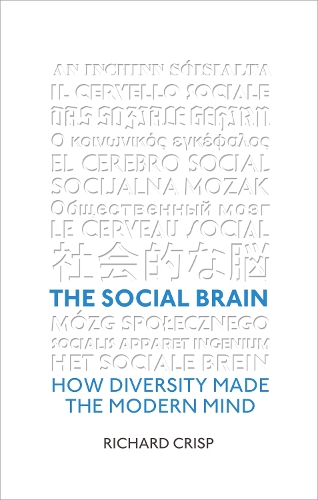
The Social Brain: How Diversity Made The Modern Mind
(Paperback)
Publishing Details
The Social Brain: How Diversity Made The Modern Mind
By (Author) Richard Crisp
Little, Brown Book Group
Robinson
22nd October 2015
United Kingdom
Classifications
Tertiary Education
Non Fiction
302
Physical Properties
Paperback
192
Width 163mm, Height 198mm, Spine 14mm
160g
Description
Is conflict caused by an inherently hostile human nature Are efforts to promote peaceful co-existence fated to fail Is the story of human history destined to play out a clash of civilizations
These are the questions framing contemporary debate over diversity, immigration and multiculturalism. The Social Brain provides an entirely new psychological perspective on this debate. It argues that diversity is critical to our very survival as a species; that contact with different cultures was, and is, the essential element that fuels our creativity, innovation and growth. It asserts that diversity was the key to our intellectual evolution and will be integral to helping us tackle the most pressing social, political and economic concerns of our time.The Social Brain ties the origins of the modern mind to the evolution of human society, and provides an entirely new insight into how we can harness the ingenuity and invention that reside within us all.Reviews
Written in a thought-provoking and entertaining style, The Social Brain reviews the scientific evidence behind our natural tendency to detect and react to social difference . . a must read for anybody interested in the psychology of intergroup conflict, intercultural relations, and the design of policies to manage social diversity.
Author Bio
With a prolific academic record and the discipline's highest accolades and awards, Richard Crisp is established as one of the UK's most dynamic, distinctive, and distinguished behavioural scientists. As Professor of Psychology at Durham University, his scientific contributions have provided new insights into how society shapes our behaviour, beliefs, attitudes, and values. He is the author of several books, including the introductory textbook Essential Social Psychology, and is Editor-in-Chief of the Journal of Applied Social Psychology.
